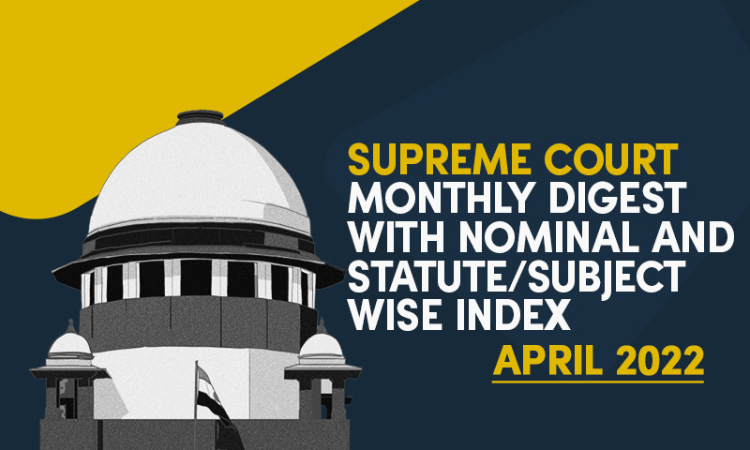Supreme Court Monthly Digest- April 2022 With Nominal And Statute/Subject Wise Index
LIVELAW NEWS NETWORK
4 May 2022 5:43 PM IST

Next Story
4 May 2022 5:43 PM IST
Administrative Law - Appeal challenging adverse Remarks made in the Allahabad HC judgment regarding a Statutory authority - Allowed - Even if the High Court found that the impugned actions of the authorities concerned, particularly of the appellant, had not been strictly in conformity with law or were irregular or were illegal or even perverse, such findings, by themselves, were not...
